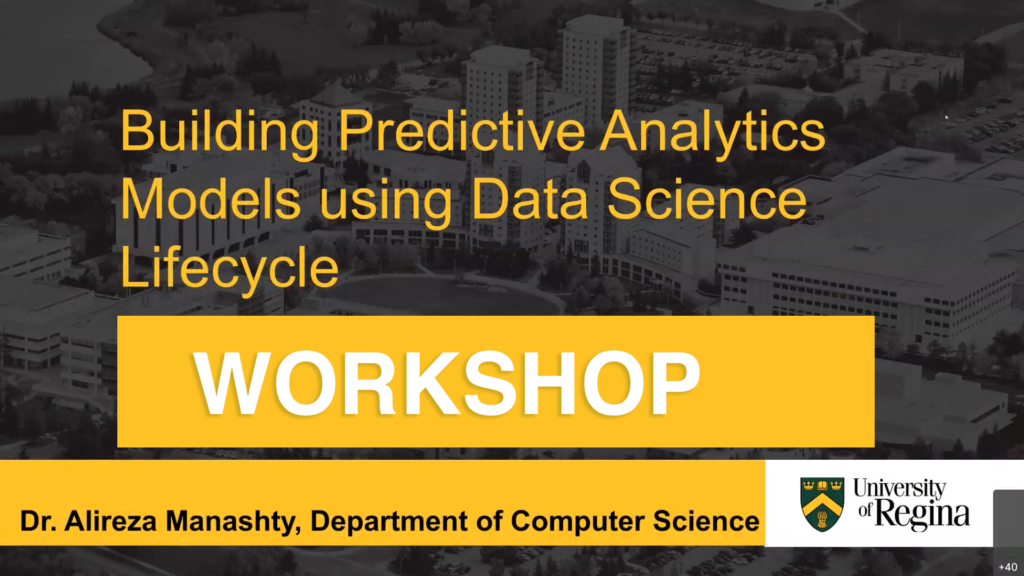Recording of the CIPS Saskatchewan Dec 10th 2020 “Hands-on Workshop on Building Predictive Analytics Models using Data Science Lifecycle in Python”
About:
People are curious about becoming a data scientist. You do not need to be a data scientist to start solving business problems using data science lifecycle.
In this workshop, you will learn how to use Python to solve an actual business problem and leverage the data science lifecycle to automate some decisions using machine learning models.
Step-by-step scenario following the data science lifecycle to solve a business problem covered in this workshop:
- Data Acquisition and Pre-processing
- Feature Engineering
- Model Building and Evaluation
Requirements:
Python programming experience is recommended. If you are new to Python, we suggest taking this free Python course on your mobile phone or computer to maximize your learning from this workshop: https://www.sololearn.com/Course/Python/
The course may take just a couple of hours to complete but any progress on this course will still be beneficial.
Access to a web browser and a Google account for conducting experiments online on Google Colab during the workshop is also recommended. Please sign up and read some tutorials on Google Colab from here: https://colab.research.google.com/
You may choose to use any other Jupyter Notebook service such as Jupyter Notebooks, Jupyter Lab, Azure Notebooks, or Visual Studio Code (with Python).
Speaker:
Alireza Manashty, Ph.D.
Assistant Professor, Department of Computer Science,
University of Regina, Canada
Dr. Alireza Manashty is the Director of Data Science Laboratory and an Assistant Professor in Computer Science (Data Science & Machine Learning) at the University of Regina. He is conducting research in temporal forecasting, federated machine learning, and explainable artificial intelligence. He has 9+ years of practical problem solving using machine learning by helping government, hospitals, and tech companies. Fortune 500 companies such as Microsoft, NVIDIA, and Google (Kaggle) have sponsored his research in recent years. Dr. Manashty holds a Ph.D. in Computer Science, a M.Sc in Artificial Intelligence, and a B.Sc in Software Engineering.

